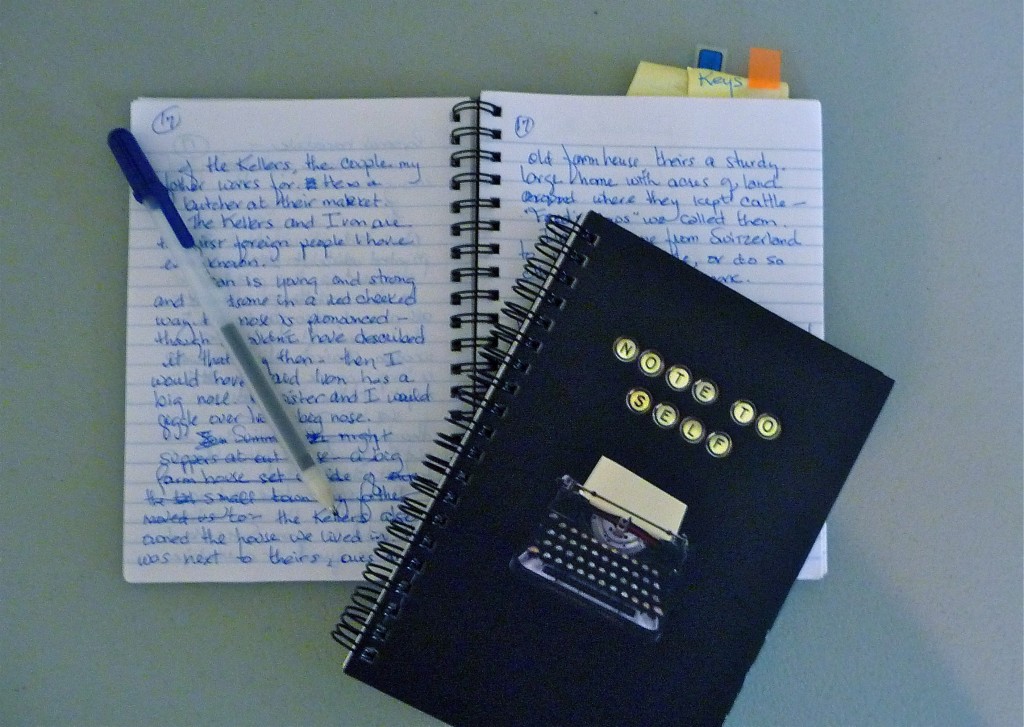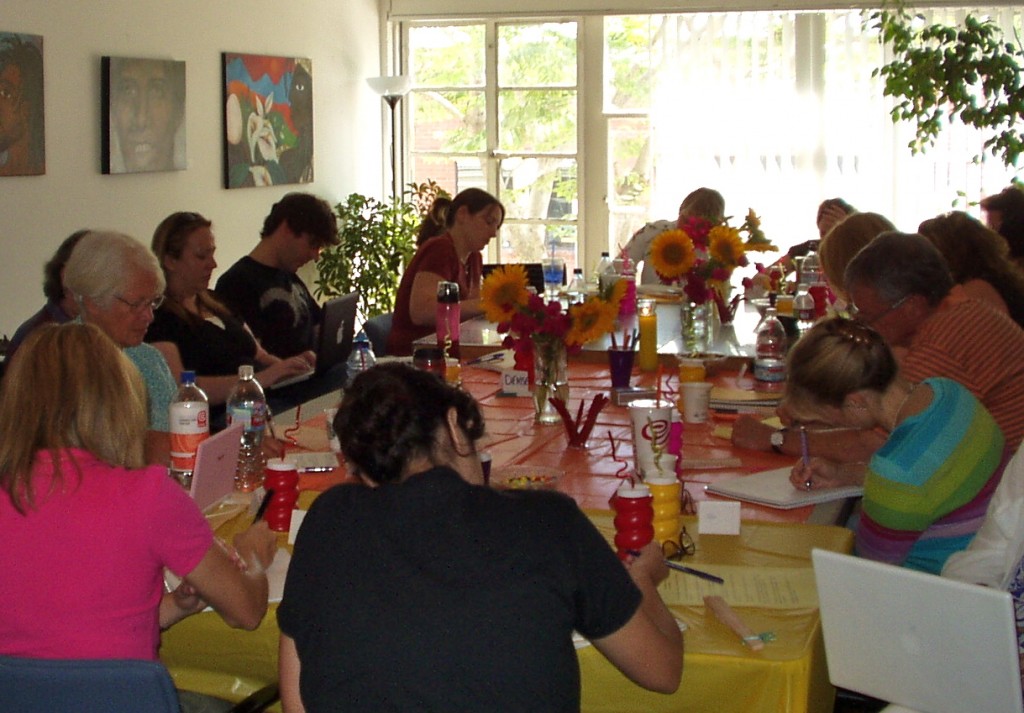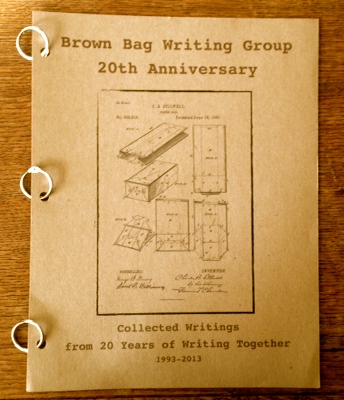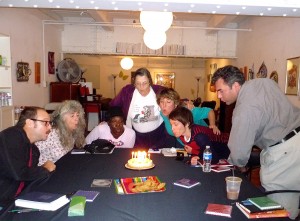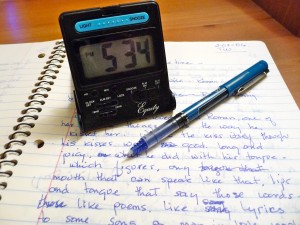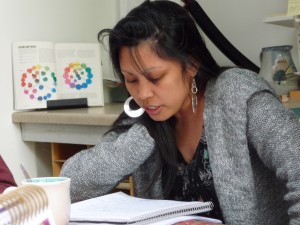Twenty years ago, at noon on Tuesday, November 23, 1993, I pulled out a chair from one of the old oak tables at The Writing Center, took a seat and opened my notebook to a fresh page and waited.
That Tuesday was the first session of the Brown Bag Writing Group, a drop-in writing practice group that came about because I knew from experience that I wrote some of my best stuff when 1) I wrote spontaneously; and, 2) I wrote spontaneously to a set time limit; and 3) I wrote with other writers to the same prompt at the same time.
Three of us attended that first meeting. One of my good friends who didn’t identify as a writer but who wanted to support me, and a guy who saw a sign in the window and dropped in. After that first session, neither ever returned. But I and my notebook did, week after week.
For several of those first weeks no one else came. Then one Tuesday a couple of other writers did arrive, and the next Tuesday more writers and then more and the Brown Bag Group began to have a life of its own.
We met at noon, read some Rules for Writing Practice cobbled together from Natalie Goldberg‘s book, Wild Mind, which, over time, we’ve amended and added to. I’d give a prompt and we’d set to our notebooks—eight or ten or twelve of us, writing for seventeen minutes (or fifteen or twenty), then reading aloud what we’d written. Bits and pieces of stories, essays, personal history. Some wrote scenes from novels (quite a few novels got started in Brown Bag, and some got finished there, too), sometimes a poet would drop in, or a screenwriter. Some of our writing was what Goldberg calls “the worst junk in America,” some of it surprised us with its freshness or elegance or depth. And sometimes we just wrote. But there we were, week after week, getting words on the page.
The Ink Spot at Liberty Station is our current home, but over the years Brown Bag has convened in nine different venues, and, including me, been led by six different facilitators, with a seventh coming aboard this month (Anitra Smith will co-facilitate the group with me, alternating Tuesdays). But we never missed a week unless that particular year Christmas or New Year’s Day fell on Tuesday, and there have only been six such occurrences over our twenty-year history. That means the Brown Bag Writing Group has met 1034 times! Now that’s something to celebrate.
And celebrate we will. Saturday, November 23, is our “20 Years/20 Prompts” all-day writing session at The Ink Spot. We’ll do it an hour at a time from 10 am to 5 pm, Brown Bag-style. On Saturday evening, from 6:30 to 8:30, we’ll honor our words by staging an Open Mic reading, also at The Ink Spot. Anyone who has ever attended Brown Bag is invited to bring a piece written during a Brown Bag session to read. We’ll create an on-the-spot Zine which readers can order as a memento of our twenty years of writing together.
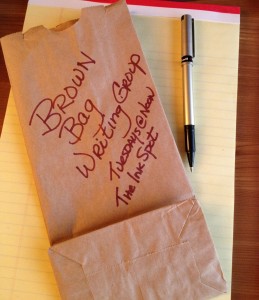 Go here to find out more about our celebration, and join us for writing, for reading, and for the grand event. And if you’ve never been to a Brown Bag before, join us any Tuesday at Noon at The Ink Spot.
Go here to find out more about our celebration, and join us for writing, for reading, and for the grand event. And if you’ve never been to a Brown Bag before, join us any Tuesday at Noon at The Ink Spot.
How’s your writing practice?

